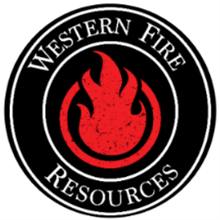Impacts on Employees
If applied to wildland fire contractors, 29 CFR 500.40 through 29 CFR 500.56 would require annual registration of wildland fire contracting companies, as “farm labor contractors”. If any employees are responsible for a “farm labor contracting activity”, which would include transporting any firefighters to fires, they too must be registered as “farm labor contractors”. Registration takes several weeks. If a wildland fire contractor had a single driver for one of their fire engines, and that driver was unavailable upon the receipt of a resource order for that engine, that contractor would not be able to temporarily replace that driver with another similarly-qualified firefighter who had all required DOT credentials, but was not yet registered as a labor contractor with the DOL. That resource order would be turned down and the 2 remaining firefighters would suffer immediate financial harm by missing that fire assignment. In a typical fire season, an engine may only get 4-5 resource orders, and fewer during slow seasons like 2023. Missing a fire assignment could easily equate to missing 20% to 25%, or more, of a firefighter’s annual income. Any vehicles used to transport employees would also require registration, which could result in additional missed opportunity for employment.
29 CFR 500.105(b)(2)(xiii) states that “no supply of fuel for the propulsion of any motor vehicle or for the operation of any accessory thereof shall be carried on the motor vehicle except in a properly mounted fuel tank or tanks”. The VIPR agreements require reserve fuel for the pump, as well as fuel for the chainsaw to be carried in DOT-approved containers. On a wildland fire engine, there is no room for reserve fuel tanks, and DOT-approved containers are typically stored within cabinets or on the outside of the pump package. Requirements of the MSPA to only carry fuel in properly mounted fuel tanks, and that of the VIPR agreements to carry reserve fuel and chainsaw fuel in DOT-approved containers, are at odds with one another.
In addition to reserve fuel for our pumps and chainsaws, many firefighters choose to also carry reserve fuel for their fire engines and fuel for drip torches as a matter of safety. In 2013, 19 members of the Granite Mountain Hotshots found themselves in an entrapment situation on the Yarnell Hill Fire. In a last-ditch survival effort, they attempted to create a fire shelter deployment site by cutting brush with chainsaws and burning out around themselves in the brush with drip torches. Due to the limited time they had, it was unsuccessful, but it was their last possible option. Compliance with the MSPA would eliminate this option for wildland fire contractors and their employees, greatly increasing their likelihood of death should they ever find themselves in a similar situation.
